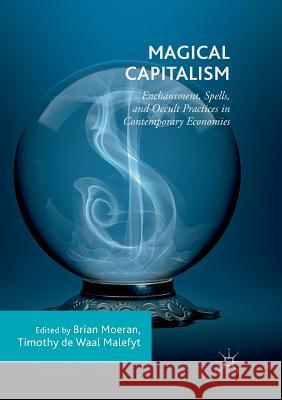Magical Capitalism: Enchantment, Spells, and Occult Practices in Contemporary Economies » książka
topmenu
Magical Capitalism: Enchantment, Spells, and Occult Practices in Contemporary Economies
ISBN-13: 9783030089801 / Angielski / Miękka / 2018 / 349 str.
Kategorie:
Kategorie BISAC:
Wydawca:
Palgrave MacMillan
Język:
Angielski
ISBN-13:
9783030089801
Rok wydania:
2018
Wydanie:
Softcover Repri
Ilość stron:
349
Waga:
0.44 kg
Wymiary:
21.01 x 14.81 x 1.93
Oprawa:
Miękka
Wolumenów:
01
Dodatkowe informacje:
Wydanie ilustrowane











